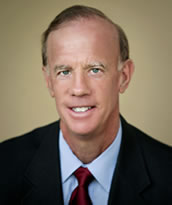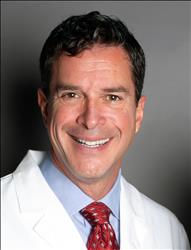Expert Witness: Retained in Washington, D.C., and over 25 states as an expert in hospital administration who could render opinion after assessing medical records, hospital policies and procedures, medical staff bylaws and regulations, JCAHO standards, depositions, etc. Served as Expert Witness for Plaintiff and Defense.
Consultant: Has assisted hospitals and health systems with accelerating their performance improvement efforts. Speaks, writes and consults on ethical issues in health care.
Background Highlights:
- Consultant, Executive Vice President and Chief Operating Officer of the health system.
- Executive Director of two academic medical centers: Emory University Hospital in Atlanta, Georgia, Stanford University Hospital and Clinics at Stanford.
- Past chairman of the national advisory board for the University of Chicago’s Center for Clinical Medical Ethics.
- An author of over 175 publications, he has written articles for USA Today, Health Management Quarterly, Trustee, Health Progress, the Journal of Health Administration Education, Frontiers of Health Services Management, Bioethics Forum, Modern Healthcare, the Cambridge Quarterly of Healthcare Ethics, Stanford Medicine, and Healthcare Executive among others.
- Co-editor of Management Mistakes in Healthcare: Identification, Correction, and Prevention, published by Cambridge University Press in 2005.
- Co-editor of Managing Ethically: An Executive's Guide, published by Health Administration Press in 2001, and a second edition, Managing Healthcare Ethically: An Executive's Guide was published in 2010.
- Fellow of the American College of Healthcare Executives, a past member of its Leadership Advisory Committee, and a consultant on health care management ethics since 1994.
- Served as a Distinguished Visiting Scholar at Stanford University’s Center for Biomedical Ethics.
- Recipient of American Hospital Association's Award of Honor in 2009 and an Albert Schweitzer Leadership Award in 2012.
- Faculty appointments held at Harvard, UCLA, Stanford, Emory, the University of California, and Seton Hall University.
- Bachelor of Science, Master of Public Health, and Doctor of Public Health degrees are from the University of California, Berkeley.
By: Paul B. Hofmann, DrPH, FACHE
Although there are still too many instances when clinical mistakes are denied, timely disclosures and apologies are not made, results of investigations are not shared and compensation offers are not extended, more hospitals are taking a less adversarial position.
By: Paul B. Hofmann, DrPH, FACHE
In 1989, I agreed for the first time to serve as an expert witness in a case brought by the family of a terminally ill pregnant patient who had a cesarean section performed against her will in a prominent university teaching hospital. Since then, whether retained as a plaintiff or defense expert, I have been surprised and disturbed by the number and types of cases in which hospitals and other health care facilities have been sued.
By: Paul B. Hofmann, DrPH, FACHE
Progress has been made on improving patient safety and reducing clinical mistakes, but errors happen and, in spite of everything, patients are still harmed.
By: Paul B. Hofmann, Dr PH, FACHE
The belated but formal acknowledgement of medical errors and their impact has been well documented.1 Curiously, the topic of management or executive mistakes in healthcare is not raised in professional meetings nor, until recently, addressed by an article in health administration journals
Paul Hofmann (co-editor)
Ethical dilemmas are common in healthcare management. Although there is no handbook providing absolute solutions to ethics challenges, healthcare leaders can seek guidance and insight from others who have tackled similar issues. This book provides advice and inspiration from healthcare executives, ethicists, scholars, educators, and consultants. This collection of ethics columns from Healthcare Executive magazine will guide healthcare managers and executives in making personal and organizational decisions.
Paul Hofmann (co-editor)
While increasing attention has been directed recently toward recognizing and reducing medical errors, healthcare organizations have yet to benefit from a similar scrutiny of management mistakes.














